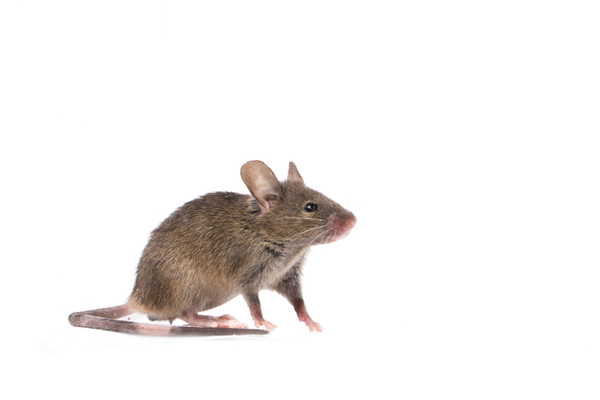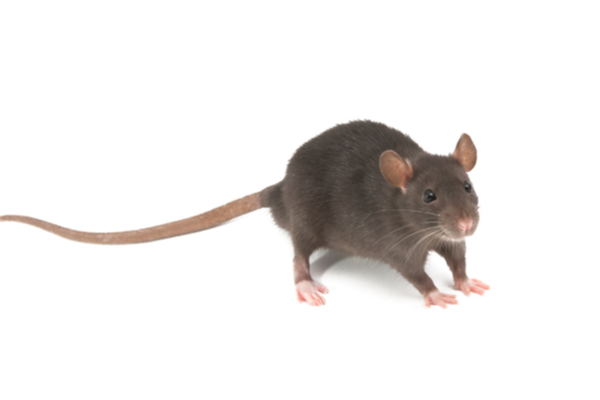Rodent Control & Removal
Do you have a rodent infestation? Contact us today to get treatment and rid your home of unwanted visitors!
What are Pest Rodents?
The two most common pest rodents are rats and mice. Rats and mice look and behave similarly and are primarily distinguished by size. Both are small, plump, and have thin grey, brown, or black fur. Common mice measure around 3 inches long, whereas common rats measure around 6 inches long.
Rats and mice are widely distributed on every continent except for Antarctica. They are common pests because they frequently depend on human settlements for food, water, and shelter. These pest rodents can infest homes and businesses all year, but they’re particularly prevalent in late summer and early fall.
How Did Rodents Get in My Home?
In order to survive winter, rats and mice need to find a warm place where they can access food. Rodents usually enter homes and businesses in early fall to nest over winter. If your building could be a source of food or warm shelter, then it will attract rodents. Rats and mice sneak through small cracks around the perimeter of buildings called “access points.” They find these access points by following the scent of food or the feeling of warm air drafts. Mice and rats are capable of squeezing through nearly any gap ¼” or wider. Rodents have a very sharp sense of smell and can feel minute shifts in air pressure, both of which help them locate indoor air drafts from outside. They follow these drafts to access points around doors and window frames, gaps around utility lines, or cracks in foundations, baseboarding, or siding.
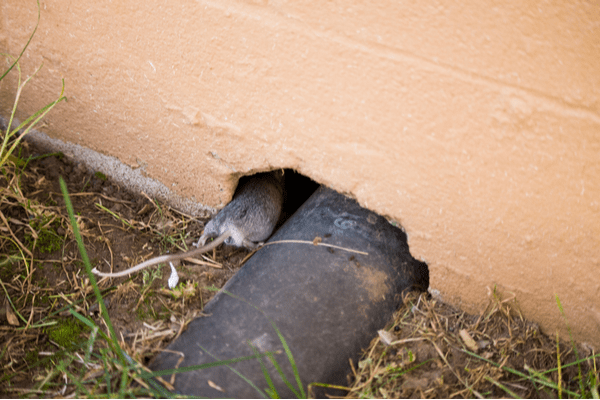
What Kind of Rodents Are in My Home?
Mice can enter a home or building through a crack as small as ¼ of an inch. They’ll seek harborage in buildings and homes if they can find adequate food and water supplies and ideal nesting conditions inside. The most common mice species that enter US homes are:
Rats are very dependent on humans for their survival. They enter into buildings through tiny cracks and crevices in search of shelter, food, and water. If these necessities are available, rats will take up residence indoors anywhere. The most common rats that enter US homes are:
- Norway rats
- Roof rats
Why Are Rodents a Problem?
Rodent incisors never stop growing. To keep their teeth sharp, rats and mice have to gnaw on something constantly. Unfortunately, they may choose to gnaw on your food, furniture, carpet, boxes and bags, or--worst of all--your electrical wiring. Rodent gnawing may damage your belongings or even start electrical fires.
Rodents are also notoriously dirty. Their fluids, waste, and nesting material may contain human-transmittable diseases, and they may carry fleas and other pests into your home. Once established, rats and mice will also reproduce inside homes continuously, further exacerbating the problems and damage they cause.
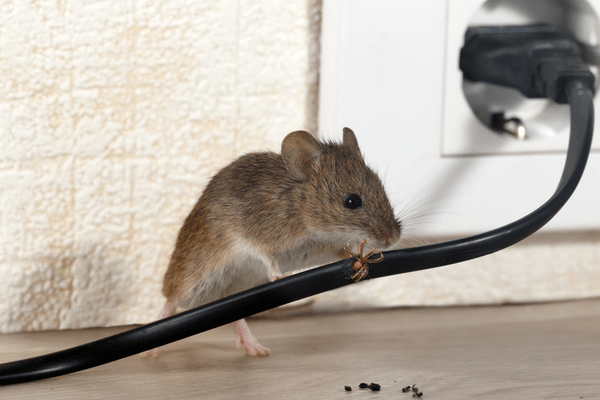
How Can Plunkett's Solve My Rodent Problem?
When you call Plunkett’s for rodent control & removal services, your expert technician will take each of the following steps:
1. Evaluation: We inspect the interior and exterior for potential food sources that may attract rodents and the access points they use to enter the structure.
2. Gap sealing: We close any small access points (holes up to 1 ½” in diameter and gaps up to ¾” wide) on the spot and recommend any larger repairs as necessary.
3. Baiting and trapping control: We strategically place exterior bait stations to prevent rodents from re-entry, place safe traps to capture any rodents already indoors and implement any additional treatments necessary to end existing infestations.
4. Follow up: The Plunkett’s rodent service plan includes at least one follow-up call to confirm our strategy is working and one final visit 60 days after initial installation.
Plunkett’s makes a 60-day guarantee for our rodent services. Our experts WILL remove all rodents from your home within 60 days of our initial visit (some restrictions apply).
Why Should I Choose Plunkett's for Rodent Control?
Plunkett’s Pest Control has been earning the trust of our clients since 1915. In that time, our technology and processes have changed, but our commitment to that trust hasn’t. We pride ourselves on the integrity of our team, process, and expertise. That pride shows in every aspect of our work.
When you choose Plunkett’s, you can trust us every step of the way. We will ALWAYS show up on time, implement an effective solution, document everything, and follow-up to ensure the pests keep staying out of your home. Plunkett’s earns trust now the same way we always have: by making sure our customers get pest control they can count on, every time.
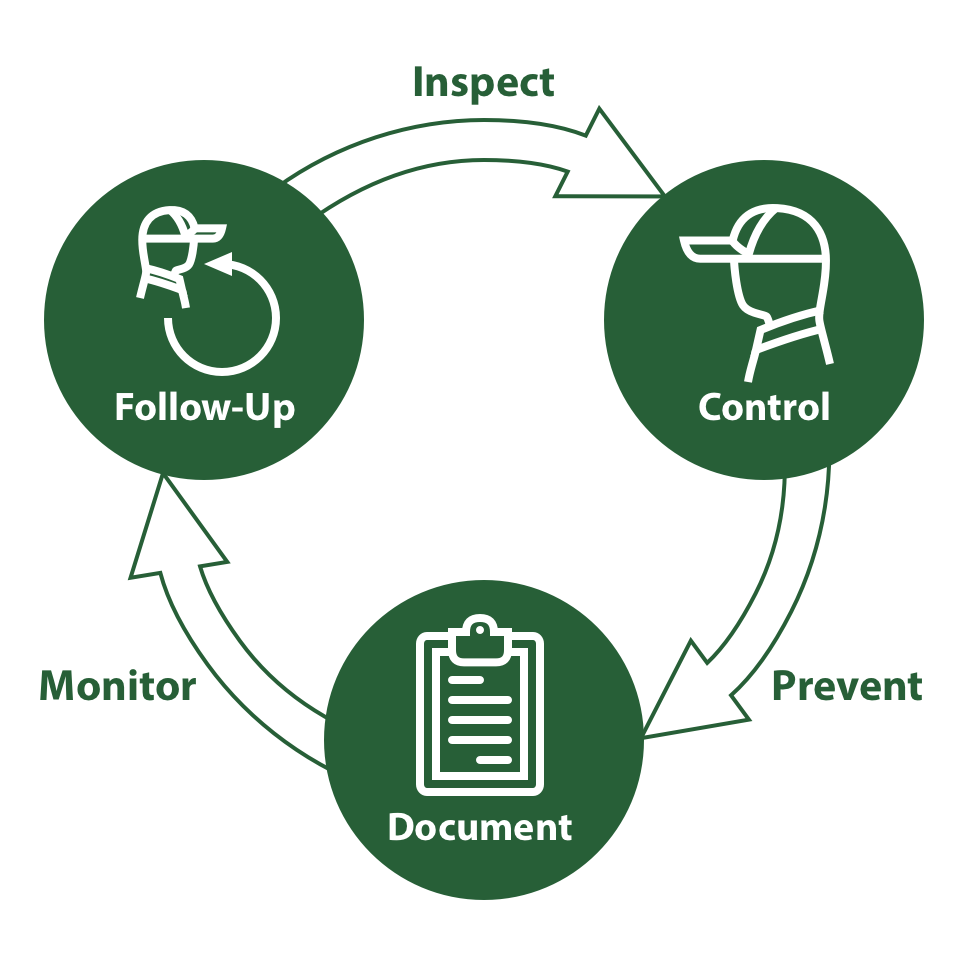
Rodent Control With Plunkett's
At Plunkett’s, our goal is to help you quickly, conveniently, and in the most cost-effective way. We make every effort to be with you asap, usually within a day or two.
Frequently Asked Questions:
What Kind of Rodents and Mice Get Into My House?
Almost all the rats and mice that invade people’s homes belong to just two species: house mice and Norway rats. There’s an upside to the ubiquity of these rodents, however. If you learn their characteristics and preferences, you can make your home rodent proof. Learn more!
What Do Rats Eat?
Rats are omnivorous scavengers who will eat nearly whatever they can find. They’re particularly attracted to food sources they can rely on for extended periods of time without expending much effort. Outside, they eat berries, seeds, nuts, birdseed, and fallen fruits. Inside, they eat dry goods, pet food, and sugar. Learn more!
Do Mice Hibernate?
No. Mice can’t hibernate or reduce their caloric or body temperature needs in any way. The only way mice can survive freezing temperatures is by taking shelter in a warm place where they can find food. They’ll start looking for overwintering sites as soon as temperatures start falling in autumn. Learn more!
What Happens to Field Mice in the Winter?
Field mice spend most of their lives outside—until winter, that is. They can’t hibernate, so instead, they have to get creative to survive the winter. To stay warm and safe in the winter, field mice will burrow, nest, climb inside hollow trees, or, unfortunately, sneak inside your home. Learn more!

